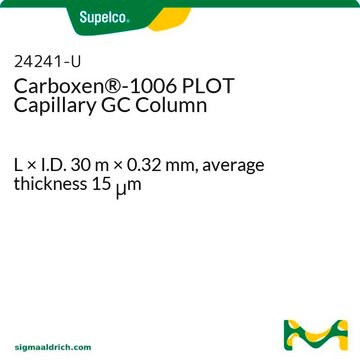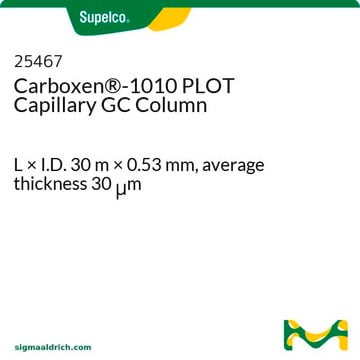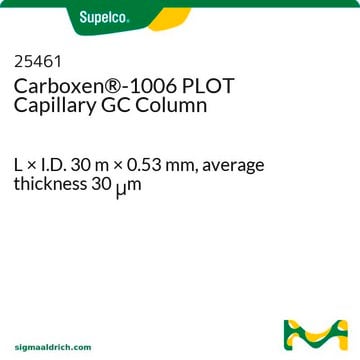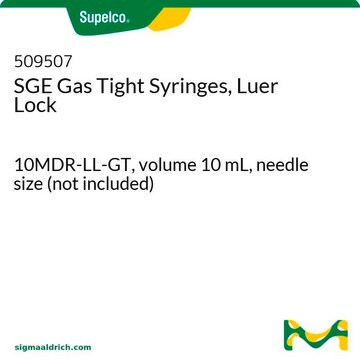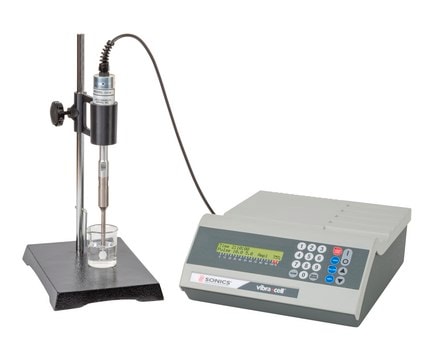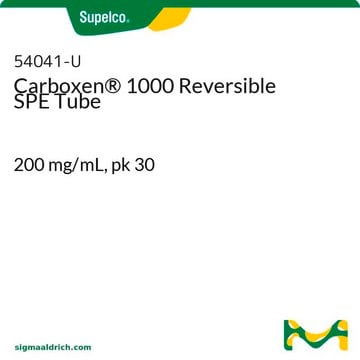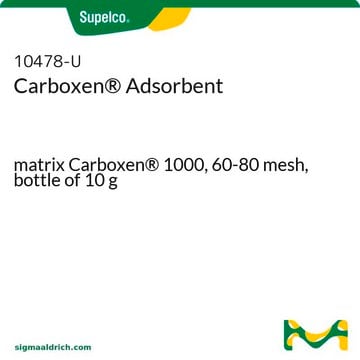24246
PLOT - Carboxen-1010
L × I.D. 30 m × 0.32 mm, average thickness 15 μm
Synonyme(s) :
Colonne PLOT Carboxen-1010, 30 m x 0,32 mm
About This Item
Produits recommandés
Matériaux
fused silica
Agence
ASTM® D3612-96
Description
PLOT = Porous Layer Open Tubular
Fabricant/nom de marque
Carboxen®
Paramètres
≤25-250 °C temperature (isothermal or programmed)
Épaisseur moyenne
15 μm
df
15 μm
Technique(s)
gas chromatography (GC): suitable
L × D.I.
30 m × 0.32 mm
Groupe de la matrice active
Carbon molecular sieve phase
Application(s)
chemicals and industrial polymers
food and beverages
Type de colonne
capillary PLOT
Vous recherchez des produits similaires ? Visite Guide de comparaison des produits
Catégories apparentées
Description générale
USP Code: None
Phase:
- Carbon molecular sieve
- Subambient to 250 °C (isothermal or programmed)
Application
Autres remarques
Informations légales
Faites votre choix parmi les versions les plus récentes :
Déjà en possession de ce produit ?
Retrouvez la documentation relative aux produits que vous avez récemment achetés dans la Bibliothèque de documents.
Les clients ont également consulté
Notre équipe de scientifiques dispose d'une expérience dans tous les secteurs de la recherche, notamment en sciences de la vie, science des matériaux, synthèse chimique, chromatographie, analyse et dans de nombreux autres domaines..
Contacter notre Service technique